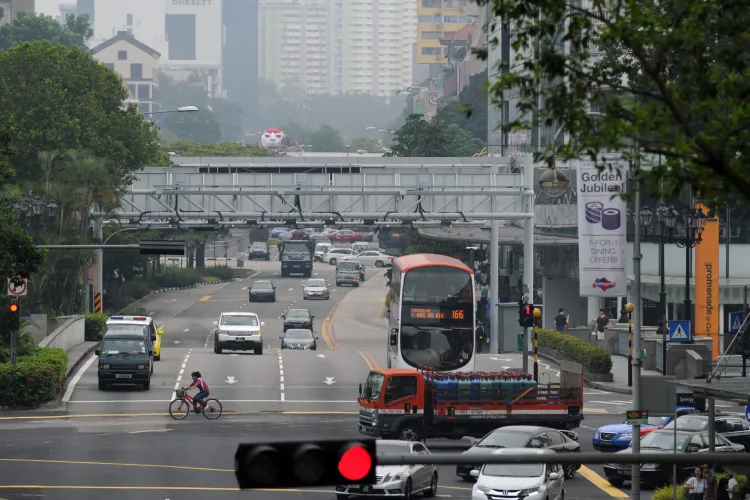Singapore Implements First Monetary Policy Easing Since 2020

Synopsis
Key Takeaways
- First monetary policy easing since 2020.
- Core inflation expected to average 1.0% to 2.0% in 2025.
- Core CPI fell to 1.8% year-on-year in December.
- All-items inflation steady at 1.6% year-on-year.
- Services inflation slowdown attributed to the easing.
Singapore, Jan 24 (NationPress) The Monetary Authority of Singapore (MAS) revealed on Friday a modest relaxation of its monetary policy, representing the first such action since 2020 and the initial adjustment in two years.
The authority indicated that it would slightly reduce the slope of the Singapore Dollar Nominal Effective Exchange Rate (S$NEER) policy band, while keeping both the width of the policy band and the central level unchanged.
This decision is in response to a slowdown in Singapore's economic growth rate and a quicker-than-anticipated decrease in core inflation this year, according to the MAS.
The MAS anticipates that core inflation, which excludes accommodation and private transport costs, will average between 1.0 percent and 2.0 percent in 2025, while the CPI-All Items inflation is expected to average 1.5 percent to 2.5 percent.
As per official statistics released on Thursday, Singapore's core inflation, as gauged by the Consumer Price Index (CPI), fell to 1.8 percent year-on-year in December, a slight decrease from 1.9 percent in November.
This decline has been linked to a slowdown in services inflation, as noted by the Ministry of Trade and Industry and the MAS.
On a month-to-month comparison, the core CPI increased by 0.5 percent. The core CPI omits private transport and accommodation expenses to give a clearer picture of household costs.
For the entirety of 2024, core inflation averaged 2.7 percent, down from 4.2 percent in 2023.
In contrast, all-items inflation in Singapore remained constant at 1.6 percent year-on-year in December. The authorities pointed out that "reduced core and accommodation inflation was counterbalanced by a gentler drop in private transport costs."









